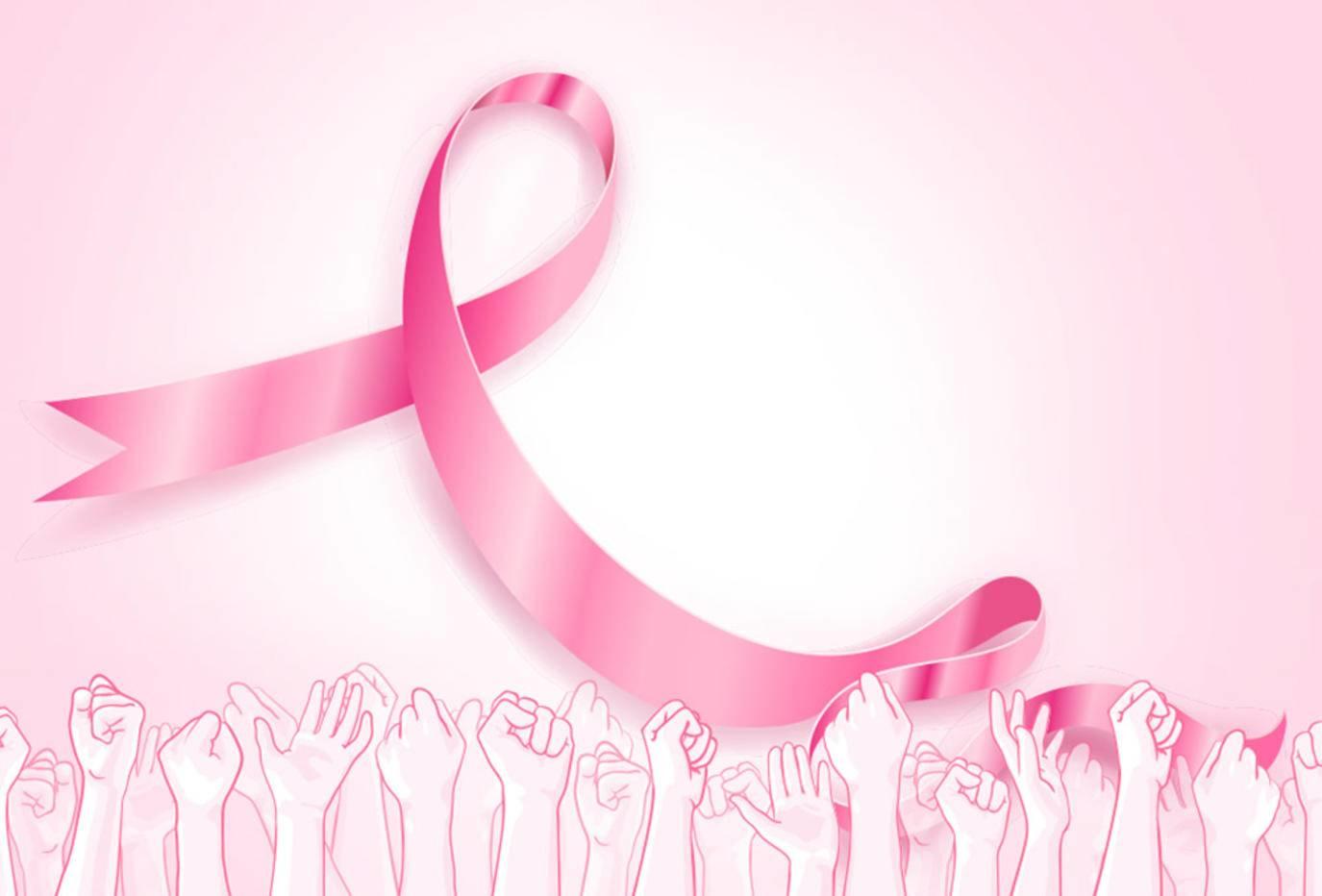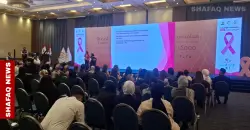Stories of breast cancer from Iraq: shocking diagnosis.. healing by emotional stability

Shafaq News / Ana'am, a resident of Karbala, discovered she had third-degree breast cancer. The doctors decided to remove her breast and put her on chemotherapy. After a year and a half, and 33 sessions, she completely recovered.
"At first, I saw a small lump in the breast. Then, it grew steadily. There was also redness, and the nipple started flipping inwards," she explained, "I went to the doctor and was astonished when I was informed that I had breast cancer."
"I was terrified about what lay ahead, but I needed to be strong for my family, who helped me overcome this ordeal. Now, three years after my recovery, I am enjoying my life with no health issues."
Ana'am noted regarding the pink ribbon, "I had difficulties moving my arm after the mastectomy, as well as swelling and irritation from removing lymph nodes. So I used the pink ribbon to warn others to stay away from me, especially at work."
Breast cancer begins in the milk glands and typically causes no symptoms in the early stages. Its symptoms, however, may include hard lumps under the skin in the breast or armpit area, changes in the texture and nature of the skin, pain and stiffness, and abnormal discharge from the nipple.
Breast cancer risk grows with age, and heredity plays a significant role in its development, with an estimated 5-10% among first-degree relatives, i.e., mother, sister, and daughter.
Every year, October is designated as Breast Cancer Awareness Month to increase awareness of early detection in its early stages, with World Health Organization (W.H.O.) statistics indicating a 20-30% reduction in mortality with the introduction of early detection programs.
Symbolizing the pink ribbon for breast cancer started in 1991 in New York City by the Komen Foundation - named after Mrs. Susan Komen, who died of breast cancer at age 33. Her sister Nancy Komen decided to create a charity in her name dedicated to supporting breast cancer patients. Pink ribbons were distributed to contestants in the marathon held in support of breast cancer survivors, and the ribbon was then adopted as a general slogan.
99% of patients are women
Dr. Ahmed Saleh, a consultant oncology surgeon, said, "Breast cancer is the most frequent disease in women, and its risk rises when women reach the age of 40. In fact, 99% of Breast cancer patients are women; only 1% are men."
Infection
According to Saleh, various factors contribute to the development of breast cancer, beginning with genetic factors such as theBRCA1 and BRCA2 genes. For example, Angelina Jolie, an actress, had this gene and decided to have her breast removed as a precaution.
"There are also hormonal factors such as frequent use of hormonal medicines or the emergence of diseases or knots in the breast that may turn into tumors in the future if neglected, not followed effectively, and not treated promptly."
Radiation hazard
According to Saleh, radiation causes the development of cancerous tumors. "Any location where the proportion of radiation exceeds the permissible limit is considered carcinogenic; for example, workers in the radiology department are legally required to take vacations when they reach their maximum radiation exposure. High-pressure towers, radio broadcasts, and telephone networks can all cause cancer if exposed for an extended period."
Treatments
"Breast cancer is classified into five phases, each has a specific treatment," Saleh explained, "Recently, treatments have evolved and are no longer limited to surgery. Chemotherapy, radiation, and biological and genetic treatments have all been developed, but the latter is currently being researched and studied."
In terms of surgical treatment, Saleh stated, "It has seen incredible development, particularly in the last ten years. The breast is no longer fully removed as it was previously, which caused significant psychological harm to women. More than 75% of it now remains without the risk of disease relapse. Furthermore, plastic surgery is performed concurrently to repair the breast, with silicone or fat injections used to keep the original breast shape by up to 80%."
Female employees surprised by having breast cancer
Some countries have mobile clinics equipped with ultrasounds and mammography units that roam to examine women for early detection. Saleh recounted that in Iraq, there were "trips to ministries to examine their female staff, several of whom were discovered to have breast cancer in advanced stages and were treated accordingly."
Healing with psychological stability
Stress and anxiety, according to experts, contribute to the growth and spread of cancer in the body. On the contrary, psychological stability slows the spread of malignant cells and, in some situations, accelerates their recovery.
According to psychologist Dr. Amir al-Hassan, when the "psychological palliation departments for cancer patients" were opened, "it was proven that the stable psychological state of the patients accelerated their recovery. That was proven successful in many cases as the spread of cancer stopped in their body."
Al-Hassan continued, "These patients need to release their emotions and receive therapeutic psychological sessions, divided into individual and group sessions. In the individual sessions, the patient expresses himself with a staff specializing in psychotherapy. Group sessions, on the other hand, are done through the sitting of a group of patients together, and each of them shares his thoughts, feelings, worries, and causes of stress, and everyone listens to the other and helps them get through this stage."
He also emphasized the importance of "educating patients about the disease itself, as well as the causes that lead to its spread and reduction."
In October of each year, the Ministry of Health launches an extensive campaign to raise awareness of the importance of early detection of breast cancer.
Dr. Ruba Falah, a specialist in family medicine and prenatal care, told Shafaq News Agency that "early detection helps to enhance recovery by 95%," adding, "there are more than 49 health centers for early detection throughout Iraq, and government health centers have recorded about 6,000 cases of breast cancer nationwide so far."
Reducing the risk of breast cancer
According to research, lifestyle modifications may minimize the risk of breast cancer, even in those predisposed to it. Dr. Rawa Al-Janabi, a consultant gynecologist, recommended four points in this regard:
1- Maintain a healthy weight. If you currently have a healthy weight, try to maintain it. If you need to lose weight, ask your doctor about healthy strategies to achieve this. Reduce your daily calorie intake while gradually increasing the amount of exercise you do.
2- Physical activity may help maintain a healthy weight, which helps in preventing breast cancer. Most healthy individuals should engage in at least 150 minutes of moderate aerobic exercise or 75 minutes of intensive aerobic exercise per week, as well as strength training at least twice a week.
3- Breastfeeding may play a role in breast cancer prevention, and the longer the breastfeeding period, the stronger the protective effect.
4- Limit hormone therapy after menopause, as it may increase the risk of breast cancer.
Breast cancer is the most common type of cancer worldwide, with over 2.2 million cases reported in 2020. According to the W.H.O., nearly one in 12 women develop breast cancer throughout their lifetime, which is the leading cause of cancer deaths among women.





